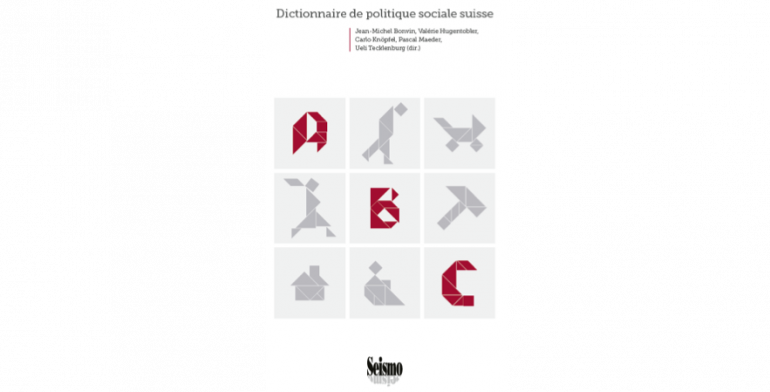
The Swiss Association for Social Policy (SSPA), the Hochschule für Soziale Arbeit of the University of Applied Sciences Northwestern Switzerland (FHNW), the Social Work Department of the HES-SO University of Applied Sciences Western Switzerland and the LIVES Centre are pleased to announce the publication of the new, completely revised edition of the Swiss Social Policy Dictionary (Seismo, 2020).
A festive online launch on 28 October will mark the release of this publication. Ueli Mäder, Professor Emeritus of Sociology at the University of Basel and at the University of Applied Sciences Northwestern Switzerland, will share his thoughts on the significance of the new publication in the overall context of Swiss social policy. Subsequently, National Councillors Mattea Meyer (PS/ZH) and Melanie Mettler (Green'liberals/BE) will take part in a discussion on social policy in the current context of the coronavirus pandemic.
The event will be accessible only remotely, following registration via:
https://svsp.ch/veranstaltungen/programm-vernissage/
Overview of social policy
The 251 contributions collected in this dictionary illustrate the great diversity and breadth of social policies. Although they are little valued in public opinion, they seem self-evident, operating, so to speak, in the background and on the margins of society, as Stéphane Rossini, Director of the Federal Social Insurance Office (FSIO), points out in the preface to the dictionary. The new edition of the dictionary makes visible both the contents and the historical references of social policies, their relationship and links with other political fields, Swiss specificities and current and future challenges. It highlights the omnipresence of social policies in the Swiss context, ranging from financial transfer benefits to protect against social risks to specific support measures, sometimes covering sectoral policies (health policy, labour market policy, fiscal policy, etc.) and sometimes cross-cutting policies to maintain and promote social justice.
A "generalist" reference work
A total of 245 authors from the scientific world, public administration, private companies and civil society have contributed to the new dictionary. In addition, 21 experts were involved in the selection and evaluation of the contributions, thus ensuring a high standard of quality. Published simultaneously in French and German in a generalist language avoiding any form of jargon, the new dictionary aims to make accessible the fundamental knowledge on social policy that is indispensable for both practice and research. The dictionary is intended for the general public as well as for professional and political circles, the media and those involved in education and training.

